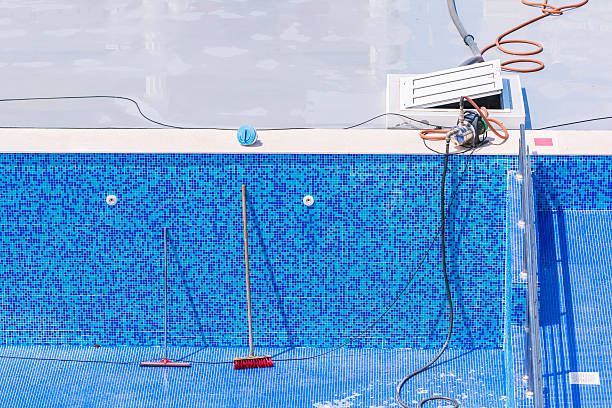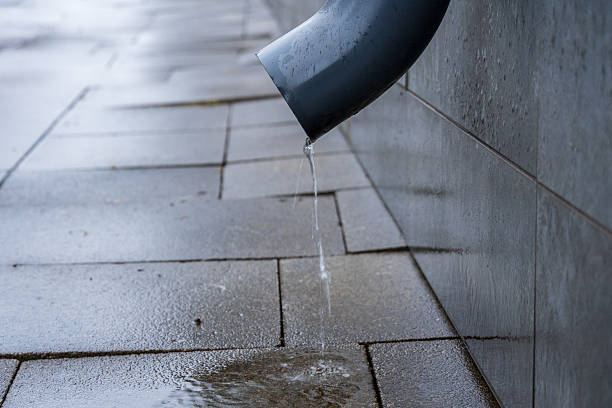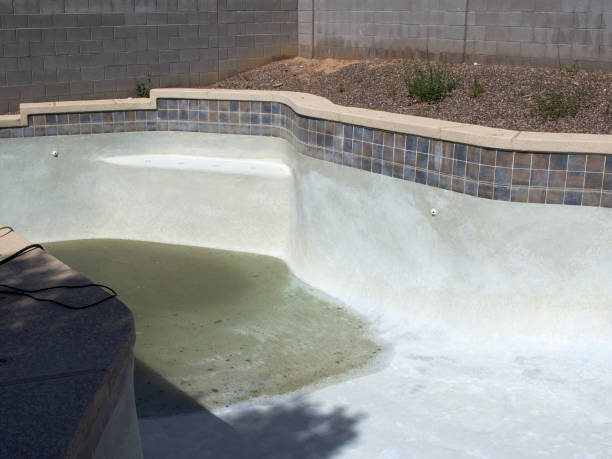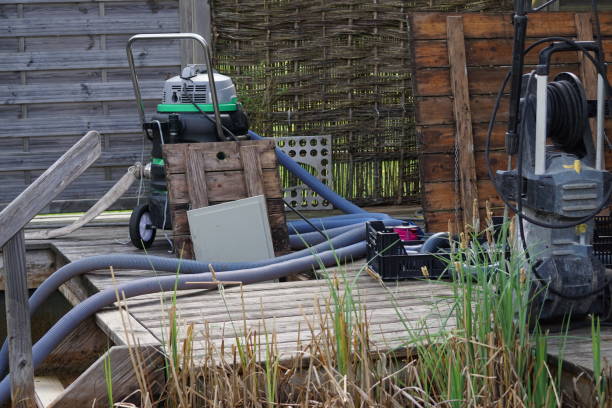Reliable Pool Leak Detection Near You
Nothing can ruin your pool experience faster than a hidden leak. Even a small leak can waste hundreds of gallons of water, cause chemical imbalances, and damage your pool’s structure and equipment if left untreated.
At Poolburg, we specialize in professional pool leak detection and repair services across Dallas, Plano, and surrounding North Texas areas. Using advanced technology and years of experience, we quickly locate leaks and provide reliable repairs to keep your pool in perfect condition.

A lowering water level doesn’t always mean you have a leak sometimes, it’s just evaporation. But if you notice any of the following, it’s time to schedule a professional leak inspection:
Fast water loss: Losing more than ¼ inch per day may signal a leak.
Visible cracks or damaged plaster: Even tiny cracks can cause major problems.
Wet or soggy spots: Puddles around your pool or equipment area often mean underground leaks.
Air bubbles or dirt returning to the pool: This could indicate plumbing leaks.
Uneven or overgrown grass: Moist soil around the pool deck can point to hidden leaks.
If you’re noticing these warning signs, don’t wait contact us today for expert diagnosis and solutions.

Ignoring a leak can lead to much bigger issues, including:
Structural damage to your pool or decking.
Increased water bills from constant refilling.
Equipment wear and tear due to low water levels.
Health risks from bacteria or algae growth caused by imbalance.
A quick inspection today can save you from major repairs tomorrow.

We’re locally owned and operated in North Texas we know the region’s weather, soil, and pool systems inside and out.
We use the latest electronic listening equipment, pressure testing, and dye tracing to locate leaks without unnecessary digging.
Our technicians respond quickly and work efficiently to detect and repair your leak so your pool is back to perfect condition in no time.
No hidden fees or upsells we explain every step and provide clear pricing before we begin any work.

Locating a pool leak takes skill, precision, and the right tools. Our technicians use non-invasive methods to pinpoint the exact source without unnecessary digging or damage.
Our Leak Detection Process:
Visual Inspection: Checking the structure, tile line, and equipment for obvious issues.
Pressure Testing: Evaluating plumbing lines to confirm where water loss occurs.
Electronic Leak Detection: Using acoustic and electronic tools to identify hidden leaks.
Dye Testing: Verifying the exact leak location before any repair begins.
It’s normal for pools to lose some water naturally usually about ¼ inch per day, depending on temperature, wind, and humidity. If you’re losing more than that, you may have a leak.
To confirm, try the bucket test:
Fill a bucket with pool water and place it on your pool’s top step.
Mark the water level inside the bucket and on your pool tile.
After 24–48 hours, compare both levels.
If the pool water drops more than the bucket water, you likely have a leak.
Tip: Turn off your pool autofill before testing to get accurate results.
Yes leaks dilute your water, which forces your system to work harder to maintain chemical balance. If your technician notices your chlorine, salt, stabilizer, or acid usage has spiked, it’s worth checking for a leak.
Consistent chemical loss, combined with faster-than-usual water loss, often indicates a hidden leak in your plumbing or structure.
Absolutely. In North Texas, hot, dry, and windy weather can increase evaporation significantly sometimes up to ½ inch per day. Low humidity, full sun exposure, and high water temperatures all contribute.
That’s why performing a bucket test is the best way to confirm whether it’s natural evaporation or a real leak.
Yes it’s a good idea to test both ways.
Run the bucket test for 24 hours with the pump on.
Then repeat it with the pump off.
If the pool loses more water when the pump is running, the leak may be in your return or pressure lines.
If it loses more when off, the leak could be on the suction side or within the pool structure.
Small leaks are often invisible without professional tools. Poolburg uses electronic listening devices, pressure testing, and dye tracing to find leaks without unnecessary digging.
You can, however, look for:
Puddles near your pool equipment
Constant air bubbles in your return jets
Damp soil or unusually green grass patches around the pool
If you notice any of these, call us we can pinpoint the source quickly.
Yes it’s a good idea to test both ways.
Run the bucket test for 24 hours with the pump on.
Then repeat it with the pump off.
If the pool loses more water when the pump is running, the leak may be in your return or pressure lines.
If it loses more when off, the leak could be on the suction side or within the pool structure.
Pricing depends on pool size and complexity, but most residential leak detections in the Dallas–Plano area start around a few hundred dollars. The service often pays for itself by preventing wasted water, chemical loss, and long-term damage.
To ensure accurate results:
Clean and vacuum the pool
Make sure the water is clear and filled to the normal level
Turn off your pool equipment before testing
Remove pool toys or accessories that may interfere with the inspection
These steps help our team complete the inspection efficiently and accurately.
Yes! Once we locate the leak, our team can handle most repairs on the spot whether it’s in the pool shell, skimmer, return lines, or fittings.
We use non-invasive techniques whenever possible to save you time and protect your deck or landscaping.
Immediately. Even small leaks can waste thousands of gallons per month and lead to:
Cracked decking or pool structure
Soaked soil and shifting plumbing
Higher water and chemical costs
Fixing it early keeps your pool healthy and saves money long-term.